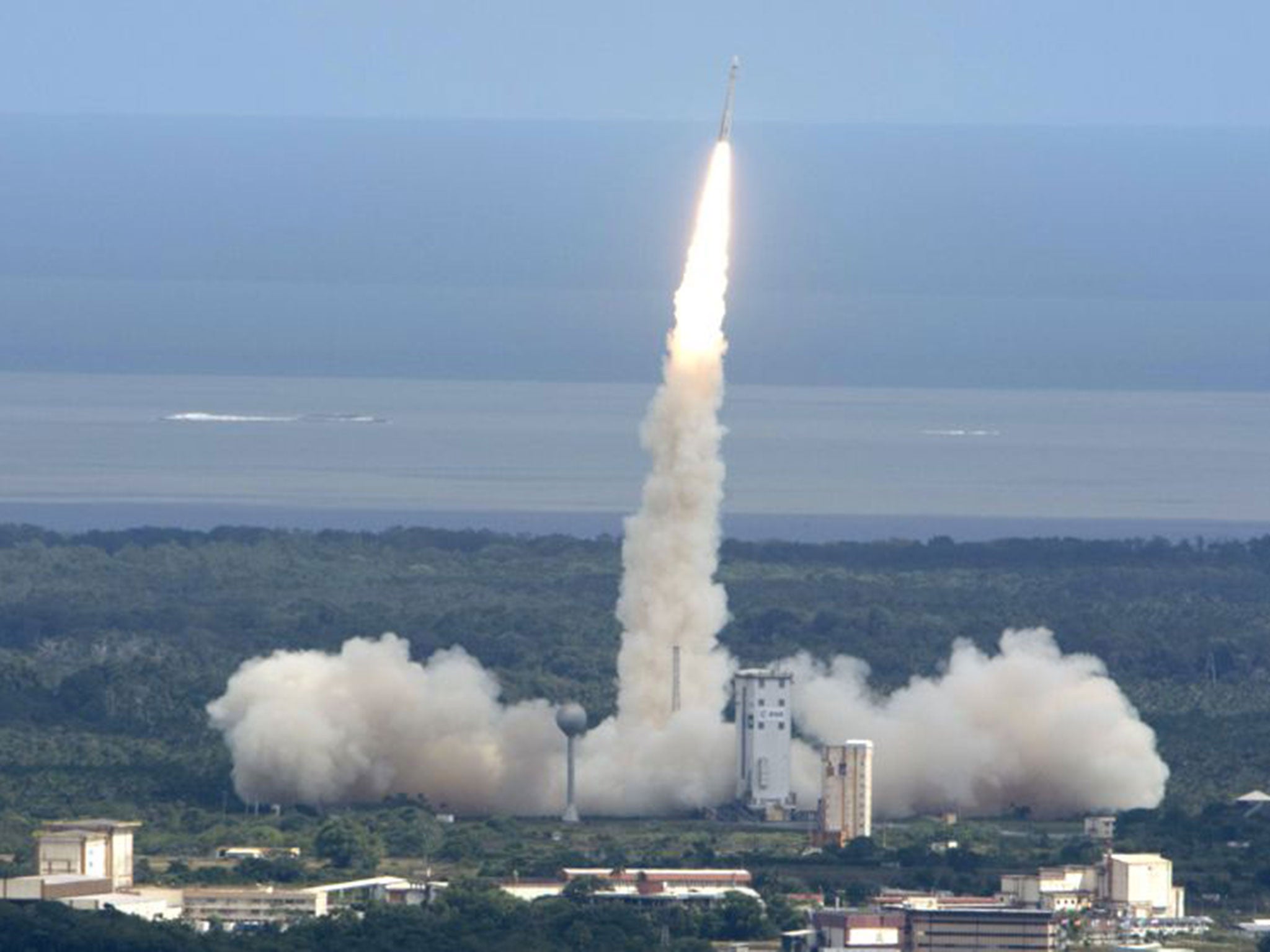European Space Agency's successful mini shuttle flight paves way for reusable rockets and cheap space travel
The IXV craft splashed down safely in the Pacific Ocean at 15:20 GMT

The European Space Agency’s unmanned IXV spaceplane has successfully re-entered the Earth’s atmosphere and returned to land, an achievement that could pave the way for cheaper space travel.
The IXV craft splashed down in the Pacific Ocean at 15:20 GMT after a flight that was called a “massive success” by ESA officials.
The IXV blasted off on a Vega rocket at 13:00 GMT from a base in Kourou, French Guiana after its initial take off time of 13:30 GMT had been delayed due to an unspecified reason.
Launching on a Vega rocket, the IXV split from the rocket at a height of 348km, rising a further 65km before beginning its descent.
The craft’s successful re-entry into the earth’s atmosphere marks a landmark moment for European space travel and has, according to ESA, provided them with “building blocks for reusable space transportation.”
It is hoped that the information taken from the flight may allow the ESA to develop spacecraft that is capable of ferrying cargo and people more economically between Earth and orbit in the future.
Re-entry is currently one of the biggest problems facing aerospace engineers, and it is only the now retired Nasa Space Shuttle has been able to do this successfully.
Elon Musk’s company SpaceX has been developing a reusable rocket called the Falcon 9 but has so far been unable to land it successfully.
After navigating through the Earth’s atmosphere, a double parachute system was then deployed to ensure the craft fell safely in the Pacific Ocean, with balloons ensuring it stayed afloat.
Cheers from staff at the ESA’s mission control room in Turin, Italy greeted the news that the project that had taken seven years to develop at a cost of €150 million had landed safely.
Reacting to the success, the ESA's director-general Jean-Jacques Dordain said: “It couldn't have been better, this will advance the frontiers of knowledge.
”Now we have to analyze all the data that was collected.“
Join our commenting forum
Join thought-provoking conversations, follow other Independent readers and see their replies
Comments
Bookmark popover
Removed from bookmarks